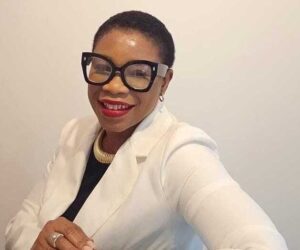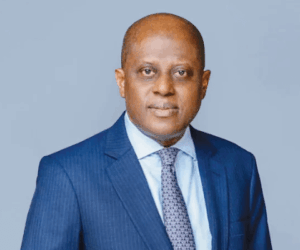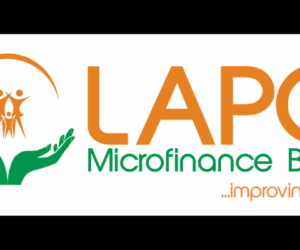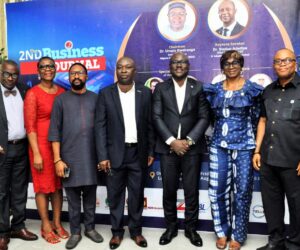The first day of Nigeria Fintech Week 2025 opened in a flurry of energy and expectation. The city’s innovators, policymakers, and investors filled the hall with a shared sense of urgency about what the future holds.
Dr Segun Aina, President of the Africa Fintech Network, stood at the podium with the poise of a man who has seen the industry grow from scattered startups to a continental force.
He looked back on the journey since the first fintech week and smiled. “It’s been one of the best over the years,” he said, “and we see it improving every year. This new platform is a fundamental example of the future of entrepreneurship.”

His words settled like a quiet promise. Behind them lies the story of how far Nigeria’s fintech space has come. From mobile banking in crowded Lagos neighbourhoods to payment solutions built in Ibadan and exported across Africa, the country has proven that innovation can thrive even in chaos.
But as the conversations throughout the day showed, the challenge now is not just innovation for its own sake. It is innovation that endures, innovation that includes, and innovation that does not leave the regulator chasing shadows.


Fintech NGR & Host, Nigeria Fintech Week and Dr Jameelah Sharrieff-Ayedun, Vice President, Fintech NGR and Chairman, Nigeria Fintech Week, at the 2025
Fintech Week Day 1 (IMG: Webtv)
Finding balance in the fintech orchestra
The next voice on stage carried the authority of the Central Bank of Nigeria. Representing the CBN Governor, Olayemi Cardoso, Yusuf Rakiya Opemi, Director of the Payments System Supervision Department, brought both reassurance and caution.
He began by acknowledging the transformation sweeping across the financial sector but urged the audience to see regulation as a partner, not an adversary.
“Our fintech ecosystem requires a strong rivalry between innovators and regulators, between inclusion and security, and between competition and collaboration,” he said. “Verification compliance is not an obstacle but a precondition for sustainable growth.”
It was a message that resonated deeply in a room filled with founders and operators who have long felt the friction of oversight.
The CBN, he explained, is not trying to stifle growth. Rather, it is trying to ensure that innovation does not outpace stability. The tension between progress and protection has always existed, but in Nigeria it feels sharper, more personal.
Every policy tweak can ripple through millions of small businesses and consumers who rely on fintech tools to manage their finances, save, or trade.
To ground his point, the representative turned to numbers. “Over the last year, we have seen strong adoption of digital channels,” he said. “4.12 billion transactions valued at ₦384 trillion by July 2025.”
The figure drew murmurs in the hall. It was proof of how deeply digital payments have grown the Nigerian economy. Yet, behind that growth lies an equally complex story about regulation, trust, and financial inclusion.
He acknowledged that while urban Nigerians now transact with ease, rural communities still face barriers. Many villages remain underserved, dependent on informal agents for access to cash. “Financial inclusion is not just about technology,” he said. “It is about ensuring that every Nigerian, whether in a city or a remote village, can participate in the digital economy.”
There was also a nod to recent policy changes. He mentioned the CBN’s push to formalise agent banking operations, referencing the new daily transaction limits for point-of-sale agents and the need for geo-tagged devices. The goal, he said, is to ensure accountability and traceability across the expanding network of payment agents.


Beyond compliance and oversight, he emphasised the need for partnerships between regulators and innovators. “The future of fintech is not one of isolation,” he said. “We need collaboration between banks and startups, between government and the private sector, between big players and the small innovators who push boundaries.”
The speech left the room quiet for a moment. It was not the thunderous kind of keynote that stirs applause, but the thoughtful kind that lingers. It reminded everyone that building a digital economy is not a race. It is an orchestra (drawing from the theme of the event) that must play in tune, each section listening to the other.
When Blessing Adediran took the stage to deliver a keynote on behalf of Senator Tokunbo Abiru, the tone shifted from policy to vision.
“The theme of this year’s conference, Orchestrating Nigeria’s Digital Future, is a call to action,” she said. “It is a reminder that the future of our nation will be shaped by the digital innovations of today.”


She paused for effect, then added, “Just as an orchestra is never a one-man show, it will take our collective efforts to harness the benefits of the digital economy.”
The imagery struck a chord at the Nigeria Fintech Week, happening simultaneously in two other locations. For years, Nigeria’s digital growth has often been told as a story of individual brilliance; one of founders who defied the odds.
But Adediran’s speech reframed that narrative. The country’s future, she argued, would depend on collective action, on collaboration that bridges the public and private sectors, and on creating policies that invite innovation rather than react to it.
She spoke of the need for a deliberate strategy to nurture digital talent, support local startups, and align national infrastructure with the ambitions of a globalised tech economy. “Together, by our powerful partnerships and collaborations,” she said, “we will build a Nigeria that is not only digitally empowered, but also a leader in the global innovation landscape.”








